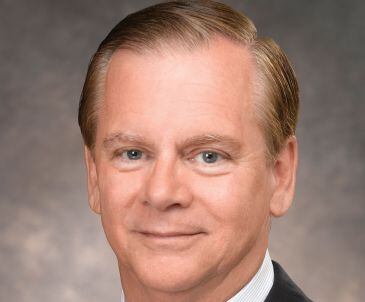While Heinz has seen some good growth in frozen breakfast products and snacks, its Smart Ones frozen entrées have not performed as strongly in recent years.
In a note to investors, senior research analyst at Sanford C. Bernstein & Co, Alexia Howard, said: “The move make strategic sense for Heinz, as it is likely to undergo more restructuring and portfolio change.
“Investors have begun to wonder whether the company should dispose of the troubled frozen business in the U.S. and expand exposure to the faster growing baby food category in developing markets.
"However, since the dividend payout was such an important feature of the investment case for Heinz, disposing of the frozen business while still a public company would have been problematic. As such, the move to private ownership could facilitate more restructuring and the sale of one or more of its businesses.”
While it’s unclear whether short term restructuring or long term growth is the focus for Berkshire Hathaway and 3G, she said, “We have seen private companies executing better in developing markets than public companies - a prime example being Mars and Wrigley's success in China - perhaps because of a greater flexibility to invest for the longer term.”
Kraft unlikely to have the balance sheet strength or the desire for a deal of this magnitude
Other trade bidders are unlikely, she predicted: “A trade bidder might be able to see cost synergies of around 7-8% of Heinz's revenues (the average for large CPG deals over the past decade). However, we don't see any obvious trade bidders in the running.”
Going through a list of potential buyers, she said that General Mills “doesn't seem to have a high appetite for large deals since the challenging Pillsbury integration and seems more focused on bolt-on acquisitions in emerging markets like Yoki in Brazil”.
Meanwhile, Kraft Foods Group is “unlikely to have either the balance sheet strength or the desire for a deal of this magnitude”, while a bid from Nestlé would also be unlikely, as it has just bought Pfizer’s baby food business, is more focused on emerging markets, and could face antitrust issues in frozen entrees in the US, she remarked.
Deal could prompt a fresh round of consolidation

However, the deal could prompt a fresh round of consolidation in the sector, she predicted.
“Following hard on the heels of the ConAgra deal, and with activist investors like Corvex pushing management teams to consider deal making, this move could prompt further consolidation in the sector.
Hillshire Brands and WhiteWave Foods (which is to be spun out from Dean Foods in May) could be possible targets, she said, while McCormick would also be an attractive target, “although it is expensive and has high employee ownership as a means to defend against a takeover”.
Smucker may be equally attractive, she said, but “also intends to remain independent and has a voting structure that materially favors longer-term holders, which may make it hard for a short-term holder to make a move”.
Meanwhile, the Hershey Trust wants Hershey to remain independent, and Campbell Soup “is bit of an enigma” as it’s unclear how individual family members would feel about a sale, coupled with the fact that there is no obvious buyer with Heinz now out of the running, she added.
“Finally, we have also previously observed that it is plausible that Mondelez will eventually find some way to merge or buy Frito Lay, were it to become available.”
Deutsche Bank: It’s unlikely that another bid will emerge
Deutsche Bank research analyst Eric Katzman agreed that it was “unlikely that another bid will emerge”.
As to the $28bn price tag (including debt), at $72.50/share, the implied multiples on 2013 estimates (12.8x EV/EBITDA and2.3x sales were “consistent with other global CPG transactions”, he argued.
“Despite investor worries over a low tax rate and challenging fundamentals in select markets, we have held our BUY opinion for several years on the basis that Heinz’s earnings power was not being fully recognized by the market.”
He added: “CEO Bill Johnson’s tenure over the last 15 years has been marked by mixed results as the company was transformed into a more global player. We see this sale as a logical and value-creating end game for his public leadership.”
Frost & Sullivan's Global Food & Agriculture research Program Manager Christopher Shanahan told FoodNavigator-USA that while Heinz's growth had not set the world on fire, it had a strong position in some high-growth emerging markets and represented a good long-term bet.
"I guess they could look to flip it, but Buffett tends to keep assets longer than Apollo and Carlisle Group and I think he is looking to build a safer more sustainable portfolio."
He added: "Investing in a good food company that has shown healthy growth during the last several years during the economic recession is smart because they can hedge this bet in case a disruptive event occurs- therefore Berkshire Hathaway will be better equipped to offer a more certain return on investment to its clients”, he said.
Bill Johnson: ‘If I put a lot of investment behind Smart Ones and I'm chasing a declining market, there's just not going to be the return I want…

Asked about the firm’s frozen entrée business at Heinz’s latest (Q2 2013) earnings call, Heinz CEO Bill Johnson said: “The category over the last five years has lost 20 million cases, about 1/3 of the total category volume.
“What we're seeing is very strong performance in our [frozen] breakfast business, good performance in some of our sides... [But] our base entrée business, we are not promoting as aggressively as maybe we could and that's a decision we've made.
“Rather than chasing volume in a category that's still not sure where it's going, we're planning on innovation. We're doing a lot of good things, particularly in breakfast, which is the fastest-growing part in the freezer case and really focusing our other efforts on Ore-Ida and our frozen snacks businesses, which are performing quite well.
I certainly don't want to imply that we're walking away from the business because we're not
"If I put a lot of investment behind Smart Ones and I'm chasing a declining market, there's just not going to be the return I want."
But he added: “We've got a lot of new activity coming during the season in terms of innovation and some new products. And then we've got some interesting things over the longer term that you'll see over the next 6 to 12 months in Smart Ones.
“I certainly don't want to imply that we're walking away from the business because we're not. It's critically important to us.”
3G: Deal all about long-term value creation
Speaking at a press conference to discuss the deal, 3G managing partner Alex Behring said it was too early to talk about cost cutting measures, management changes, jobs or synergies, but stressed that 3G was interested in "long-term value creation".
Click here to read more about the deal.
